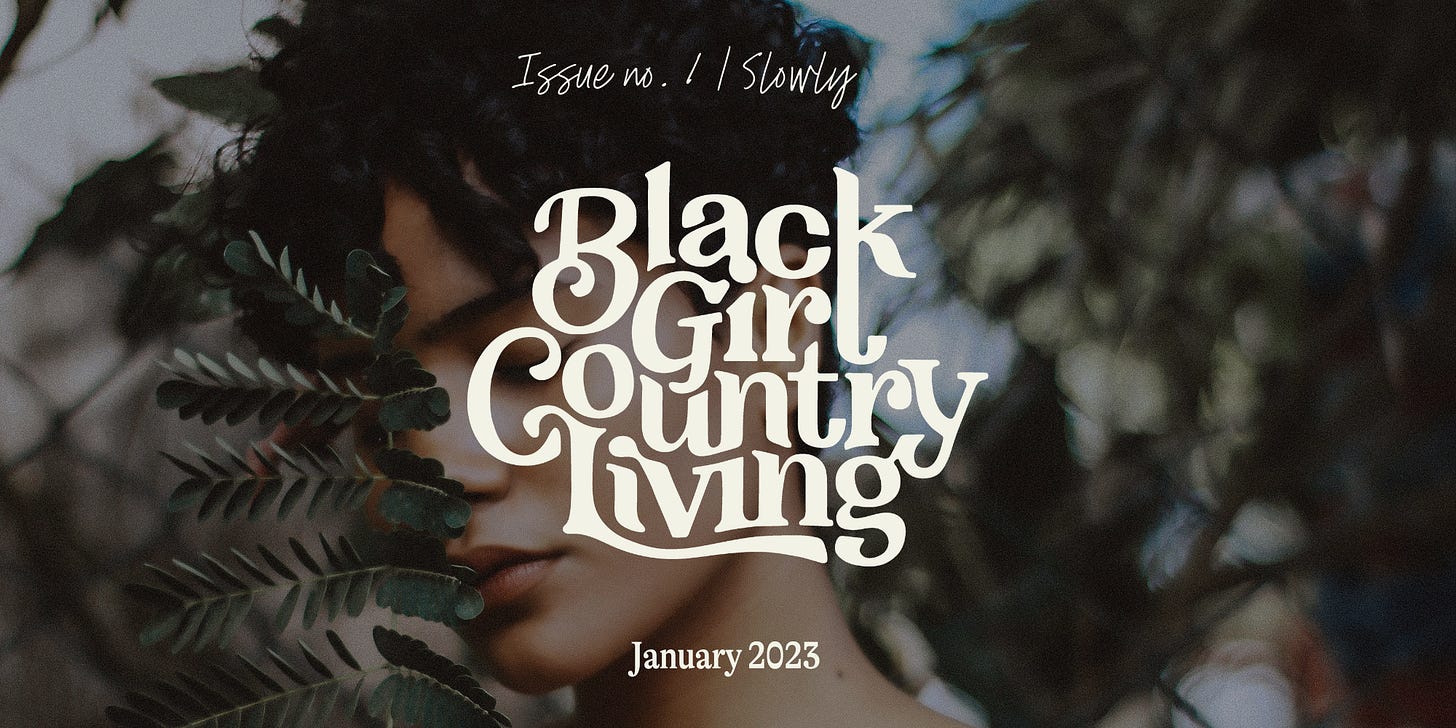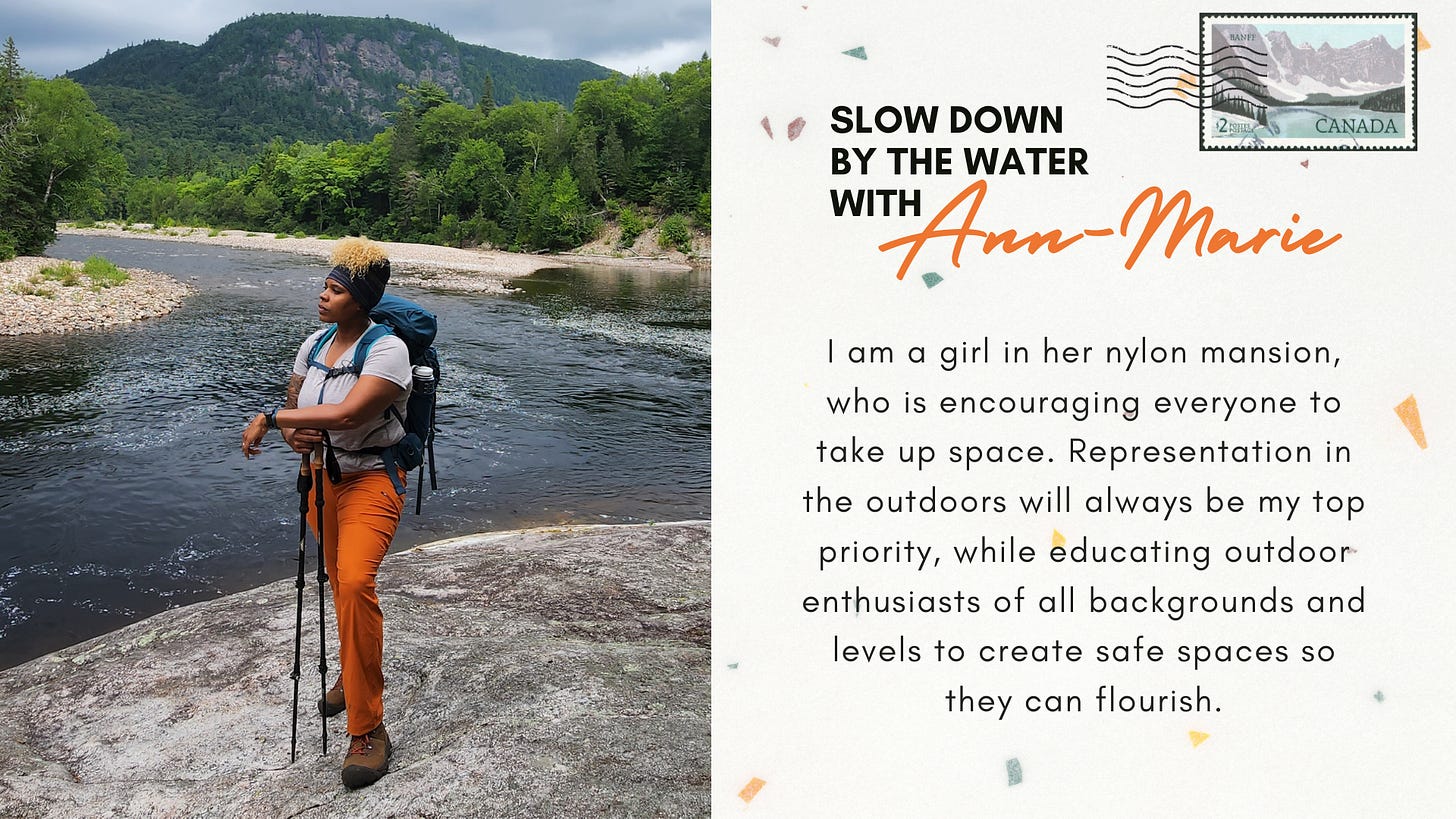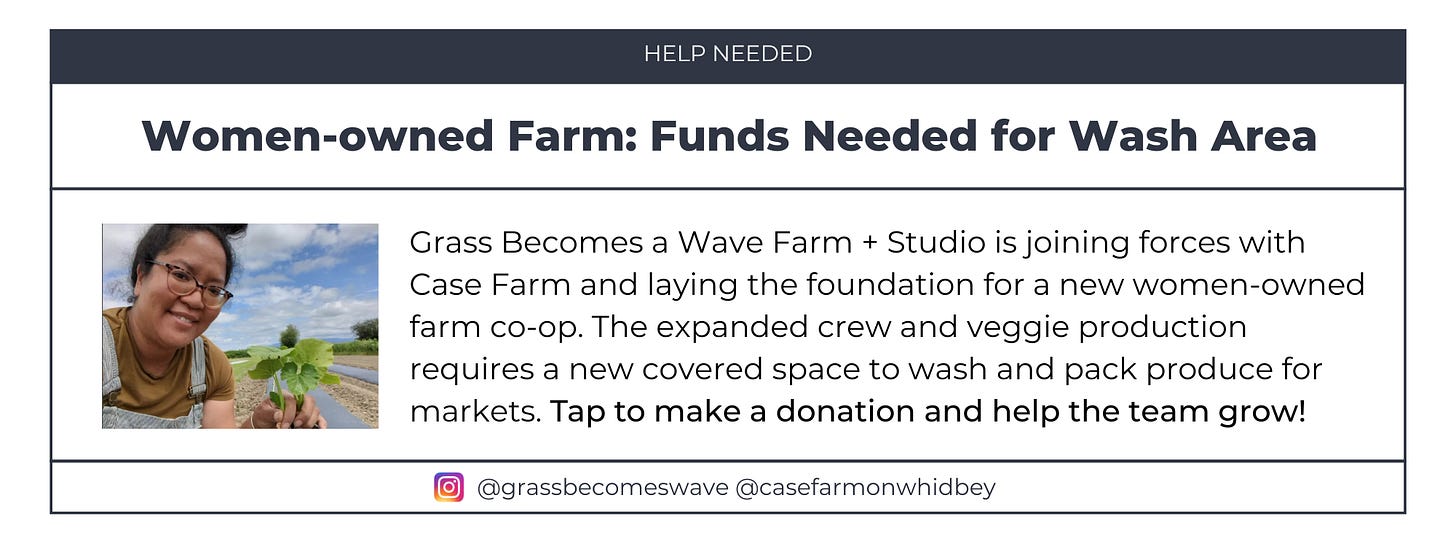BGCL Magazine is a monthly digital exploration of nature as a way to reconnect to ourselves, each other, and the earth. Dive deeper into the themes and stories each month through the podcast, instagram, and live events (coming soon).
Hello Wild Ones,
Slow winter walks in the forest with a cup of tea have become one of my favorite activities. I once assumed these places were dead and uninteresting this time of year, but that is far from the truth. They are very much alive and thriving, but in more subtle ways than I imagined. And it requires patience to see and appreciate the beauty.
Instead of life taking place above in the towering trees, it has shifted to the forest floor. Down there, a shallow carpet of moss has emerged and is thriving on the cool, damp weather. Below the pine trees, tiny fungus poke through and lush salal hug the bases of trees. These small, understated plants are working to break down, regenerate, recreate, and prepare for new life.
This slow, virtuous cycle is a living conversation. I reflect for a moment on the delicate balance and the nuanced work taking place beneath the surface in order to produce big growth in the months to come. Why is this a cycle assumed necessary for the natural world but not necessary for human lives? How might life be different if we allowed space for this deep inner work and recovery?
Sitting with these questions, I thought about my own creative process. I considered my cycle of writing a new newsletter each week last year. No time to sit with an idea to find a deeper truth. No time to have a dialogue on how those ideas moved you as readers or hear your perspective. A reflection of our broader consumption habits, and something I am ready to challenge.
Instead of producing for the sake of newness this year, my intention for 2023 is to create at a slower, more intentional pace—a pace inspired by nature. To allow spaciousness that invites in new perspectives. To uplift others’ experiences and insights. Because much like the activity on the forest floor, there is richness is the slow, deep work we can do together.
With that, I give you BGCL Magazine: a monthly exploration of the ways we connect with nature. Each magazine will be themed and showcase a variety of ideas through the lens of history, pop culture, music, community, self-care, and more. The stories in the magazine will come to life through Rewilding Experiences that will be unfolding throughout the year.
And how about the podcast? It too is becoming a monthly release, a week after the magazine. It will include audio interviews and your messages from the Nature Calls hotline. Want to be on the podcast? Call the Nature Calls Hotline and leave a message sharing how you are slowing down in the new year: (425) 610-6475.
Thanks for taking time to slow down and be present with me. Take care, be kind, and we'll talk soon,
Hillarie
We have all doubted whether our individual actions can impact our environment. John Francis believed they mattered and it showed in his slow, intentional approach to environmental activism.
Dr. Francis cared so deeply about the environment that he stopped riding in cars. And when he got tired of arguing about that decision, he stopped speaking.
After two decades of walking the country in silence, his greatest learning was that how we treat each other is directly related to how we treat the environment.
Here are 3 things you should know about John:
After witnessing an oil spill in the San Francisco Bay in 1974, John was shocked by the devastation caused to the local environment. He wanted to make a stand, so he stopped riding in cars—for 22 years.
For weeks, he argued with his friends about whether one person could have an impact. Tired of debating, he decided to stop speaking and just listen for 1 day. That one day of silence taught him so much about himself in the world that it extended into 17 years of silence.
During his years in silence, he walked across the country with his banjo, learning about the environment. In that time, he earned his BS, MS, and PhD in environmental studies—and even taught classes on communication.
The greatest lesson he learned from his time in silence was that we must care for each other if we want to care for the environment.
If our environment is a product of how we treat each other, what is one practice you can do to improve our environment?
Do you have a unique or insightful perspective on this topic? Send a letter to the editor: hello@blackgirlcountryliving.com
Kithship is a belonging to a place and an intimate knowledge of that place. Each issue will have a new kith interview sharing a person and a place that are deeply connected.
What place makes you feel most connected?
The place in nature that keeps me most connected is being among water. Whether that means just simply being close enough to hear it or sitting right next to it, water is what grounds me.
What about that place makes you feel connected?
Water has this ability to instantly heal – I’d like to say. The sounds of rushing water have the power to calm you and place your busy brain in a meditative thought. Still water has the ability to zero in on being still and taking things slow. Water encourages you to be present, something which many of us find difficulty in doing.
What is an important lesson that your relationship with water has taught you?
Water is the necessity of life. It is the thing we need to keep the cycle going. Sometimes we need a reminder to slow down and simply listen, feel, and take a good look at what we truly need. Placing the importance on what aspects of life that truly deserves our attention, and keep doing more of that. Those are the things that keep us alive! Those are the things that keep us grounded.
Follow Ann-Marie on Instagram: @its_ann_calling
A playlist to help you dwell, turn inward, and steep in the moment.
by Udie Chima
For me, winter has always been an opportunity for introspection and holds the potential for change. I wanted to curate a set of music that expressed an understanding that growth and metamorphosis are not fast, nor can they be rushed.
But as I was working on the mix, another idea came through in several of the songs—having faith. This resonated for me because sometimes it is hard to believe we will come out of the darkness of winter. Faith brings us through every time, and often more in touch with our essential nature.
Whether it is allowing time for change or finding the faith to make it through, winter can be a challenging season. As you listen, think about how you can create more space in your life for for slow, intentional transformation to unfurl.
Let it breathe.
We have all attended a yoga class or meditation where we were asked to start with an intention—and maybe you were a little stumped, like me. What I didn’t know at the time is that intentions are more than a belief. And in order for them to be effective, we have to be aware of how our intentions create ripples in the world.
Just like the conversations in nature, we have to make space for intentions to be part of a feedback loop. When we do that, we open ourselves up to a deeper understanding of ourselves and the world. Here is a simple way that I think about intentions as an ongoing cycle:
Setting: Why am I doing what we are doing? What am I hoping to get out of this? Intentions are both intellectual and emotional because both forces shape our actions. Bringing awareness to our mind and heart is the beginning any change.
Acting: Once our intention is set, we move our energy out into the world through our speech and our actions. When we slip into autopilot or old behaviors, our the intention we set can gently remind us of how we want to act in the world.
Receiving: When we act, there is always a reaction. The challenge is being open to receiving it. This will tell us whether our intention had the impact we intended—because good intentions can still harm others or ourselves.
Repeat cycle and notice how you change as you receive feedback. With time, I have found that seeing my impact has become easier. Moving through life with intention has now become an essential part of my self-care. Try it for yourself and let me know you receive back from the intentions you put into the world.
Letter to the Editor
Last fall, I wrote a story about rest, originally titled, ‘Rest Now or Grind Forever.’ In response, I received this thoughtful perspective on my use of a binary choice in the title. The feedback stuck with me and helped me to be more aware of the way binaries lead to absolute thinking.
Hey Hillarie,
I love this intention and topic so much. I've been thinking a lot about rest lately and loved hearing The Nap Ministry on the We Can Do Hard Things podcast. Thank you for bringing more awareness to this incredibly important vision.
One thing that I'm curious about is the title of the blog post—rest now or grind forever. It does seem to be either/or thinking, a binary, and I struggle with the title when the content of the blog itself is so good. Is the binary necessary?
I'm wondering how we can consider more alternatives than rest now or grind forever. Surely, that's over simplifying things which, at least to me, reading that can feel divisive. I think there is space to hold both options, and the nuances in between rest and grind, more non-judgmentally.
Anyway, just my two cents. I really like your blog and I appreciate what you're doing. Thanks for sharing your writing and thoughts with the world,
G.W.
Submit your own letter to the editor. Press reply or send an email to hello@blackgirlcountryliving.com
Did you find the magazine insightful? Share it with a friend!

















Thank you for this, Hillarie! I’m looking forward to learning from all the voices and stories you’re amplifying here.
I love the direction this is taking. I'm excited to see where it goes 😊